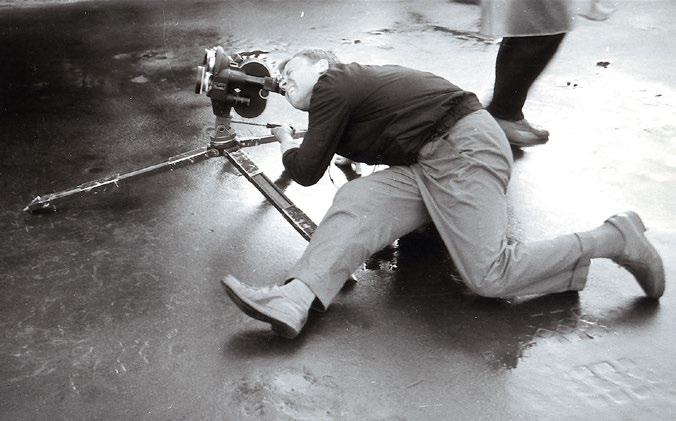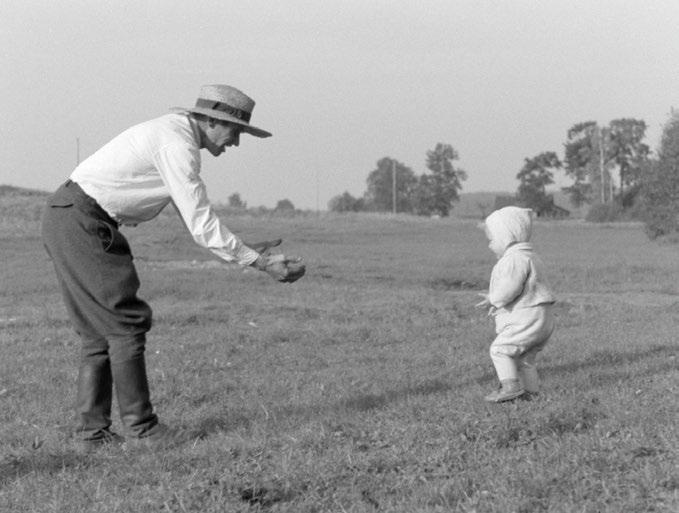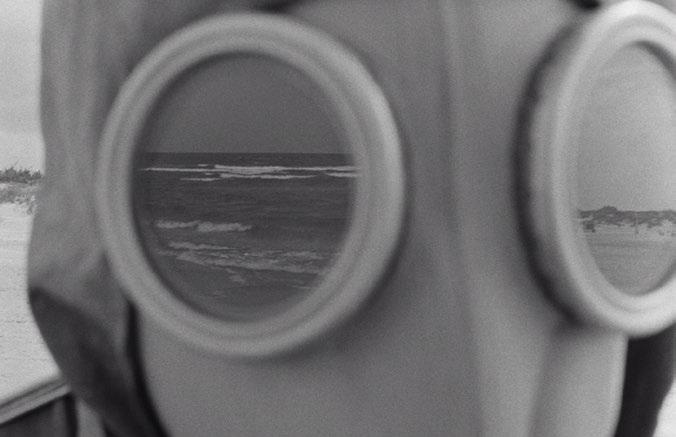
1 minute read
Strong Tradition and the Search for New Forms
It’s time to celebrate thirty years of independent Lithuanian documentary filmmaking.

By Neringa Kažukauskaite
In Lithuania, documentary filmmaking was an important ideological tool during the Soviet era. However, in the mid 1960s, Lithuanian poetic documentary, a unique school of documentary cinema, began to emerge. Its emergence is linked to the Soviet Union’s Thaw period, as well as the arrival of a new creative force in Lithuanian cinema: a young generation of directors and aspiring cameramen.
Robertas Verba’s films The Old Man and the Land (Senis ir žemė, 1965), Dreams of Centenarians (Šimtamečių godos, 1969), Ciutyta Ruta (Čiutyta rūta, 1968), and To the Celebration (Šventėn, 1970) contain vivid visual poetic metaphors. Long shots of the characters’ faces are taken, and genuine conversations replace previously heard disconnected voiceovers and authorial commentary.
The camera focuses on rural everyday life and its environment, which bleeds into the recognisable natural Lithuanian landscapes, perfectly capturing the natural poetics of everyday life. The recorded reality takes on an allegorical connotation, raising questions about the meaning of existence itself.
Viktoras Starošas’ films are full of social themes: Dreams and Fates (Svajos ir likimai, 1961), Cheer up, Virginijus (Nenusimink, Virginijau, 1962), Love the Headmistress (Aš myliu direktorę, 1978) stand out for their human compassion, which is uncharacteristic of Soviet documentaries. The internal monologues, dynamic montage, and sound effects make the films come alive.
Henrikas Šablevičius’ films Liuob sokt, liuob dainuot (Liuob šokt, liuob dainuot, 1974), A Trip Through Misty Meadows (Kelionė ūkų lankomis, 1973), The Sorceress (Žiniuonė, 1975), Apolinaras (1973) are characterised by a light mood, humorous intonation, and even some manifestations of the grotesque. The director is most interested in simple yet highly individual people and their daily lives, avoiding the political realities of the time.

No Foe Can Scare Us (Mumsnebaisūsjokiepriešai, 1978), Sensitivity as Bread (Jautrumo kaip duonos, 1979), etc. – these are documentaries by Edmundas Zubavičius with a clear journalistic form and a satirical point of view.
Director Almantas Grikevičius, who later directed feature films, began his career with documentaries. The city symphony Time Passes Through the City (Laikas eina per miestą, 1965) remains one of Lithuanian documentary’s most outstanding works. This dynamic film, dedicated to Vilnius, is full of innovative artistic solutions that metaphorically combine the past and the present.










